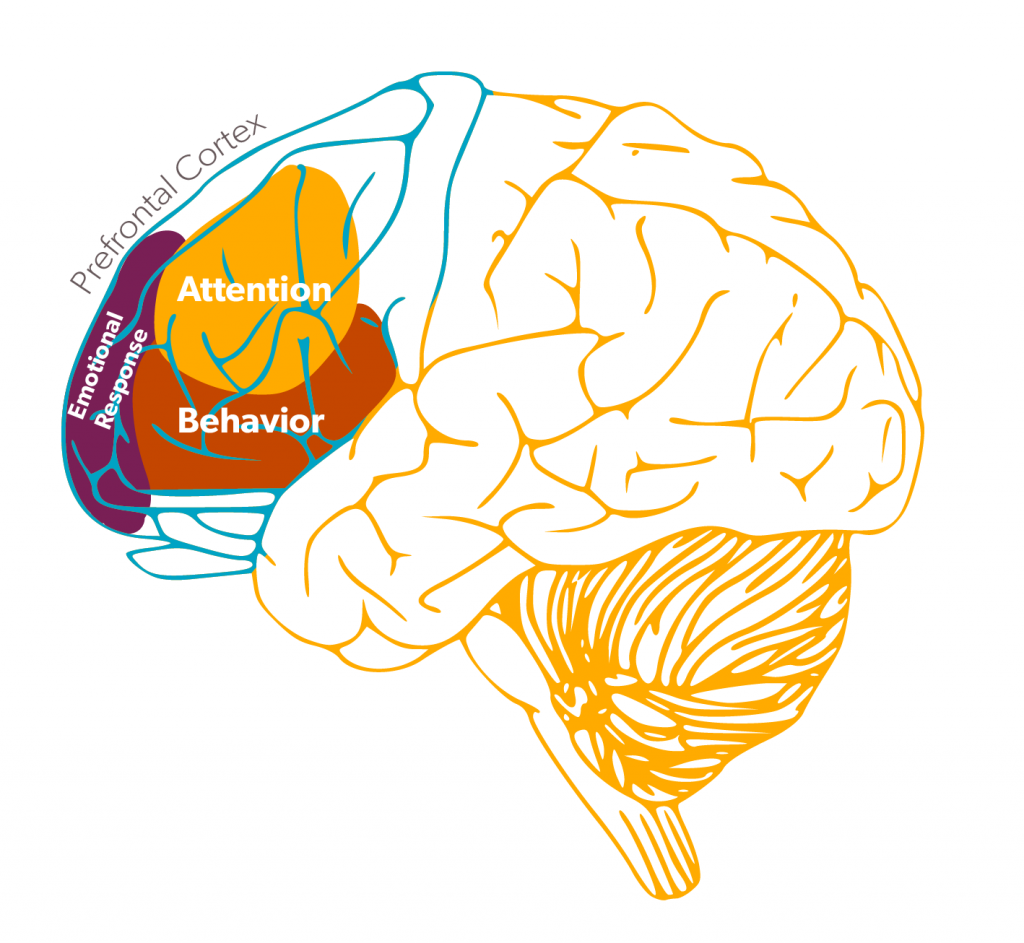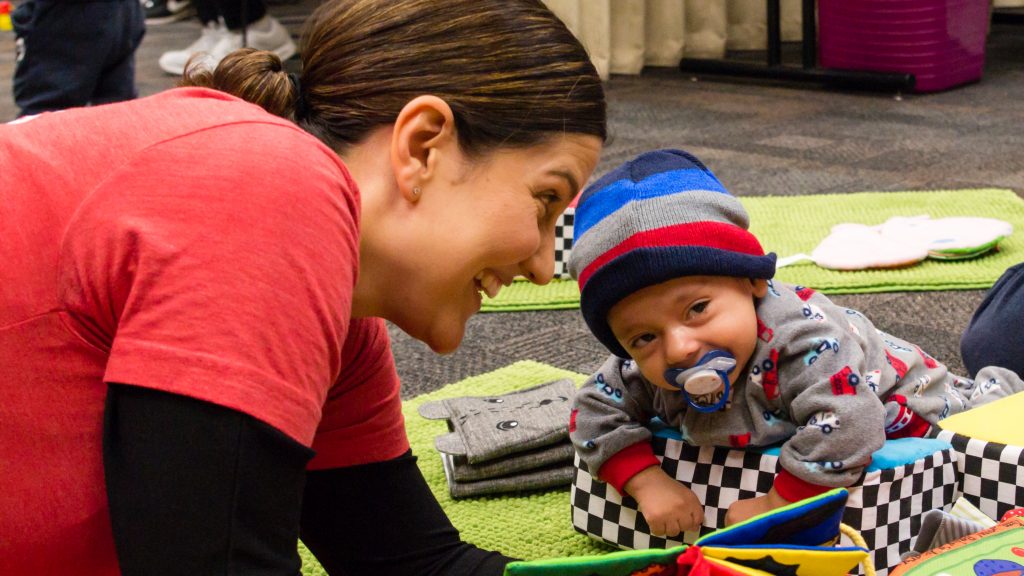At Make Way for Books, we love books and reading and we would like you and your child to fall in love with them too. Our mission is to give all children the chance to read and succeed, but not just in school. Ultimately, we are focused on the bigger picture. We know that you and your child are the future of this community, this country, and the world. If books build brains, then books build leaders.
And this means that together, our work is to build the future.
As you know, when you talk, sing, read, and play with your child, you are building literacy and language skills. But you are also doing so much more! You’re building compassionate, open-minded, decisive, patient, inspiring, passionate, honest, and culturally-sensitive leaders. How? The answer may lie in something called executive function.
Executive function is the brain’s “air traffic control” system. It allows us to plan, monitor our emotions, control our behavior (known as self-regulation), and manage our attention. Babies aren’t born with these skills, but they are born with the potential to develop them, and you, as your child’s first and best teacher, help develop those skills.
Scientists have found that early executive function skills begin developing in infants as young as 6 or 7 months. These early skills help children control their attention and regulate their behavior later in life. They are related to children’s ability to resolve conflict. And self-regulation skills can even predict children’s empathy skills as they mature. So the skills that you nurture when your children are infants will ultimately affect their ability to control their behavior and emotions, to solve conflicts with patience and compassion, and even to be more understanding of people in different situations! And all of these abilities are the makings of a good leader.
If we want our children to grow to be the types of leaders that will make this world better for everyone, we need to support children’s language, literacy, and executive function skills from birth. Together, we can do this!
Here are some fun, easy ways to help your child develop executive function and self-regulation skills:
For babies up to 18 months
— Lap games, like peekaboo, help exercise working memory and self-control skills.
— Fingerplays with simple hand motions, like the Itsy Bitsy Spider or Open, Shut Them develop self-control and language skills.
— Hiding games, such as putting a toy under a cloth or cup, are great for older infants gaining the ability to track the movement of the toy.
For toddlers up to 3 years
— Active games, like Follow the Leader, require toddlers to exercise their working memory and attention skills.-Games that require children to stop or slow down, like the Freeze Dance or Red Light, Green Light, build self-control and inhibition skills.
— Games that require children to stop or slow down, like the Freeze Dance or Red Light, Green Light, build self-control and inhibition skills.
— Remember that children this age are still barely learning these skills, so don’t expect them to be able to follow the rules of the game perfectly!
For children up to 5 years
— Imaginary play is very important at this age, and children create their own rules for their games, take turns, and develop ideas in their minds that shape their play. When they play with other children, they are also beginning to regulate each other’s behavior, which is an important step towards developing cooperation skills.
— Reading books, while important from birth, gives children this age the “experience” they need to be able to develop their own scenarios and stories for imaginary play.
— Join in your child’s imaginary play and follow the rules and roles they set for you!
Click here for more ideas for activities on the Make Way for Books Early Literacy App!
For more resources about developing your child’s executive function skills all the way up to adolescence, visit Harvard’s Center on the Developing Child.
*Sources: Rothbart, Ellis, Rueda and Posner, 2003; Eisenberg, Michalik, et al., 2007; Gardner et al., 2005

